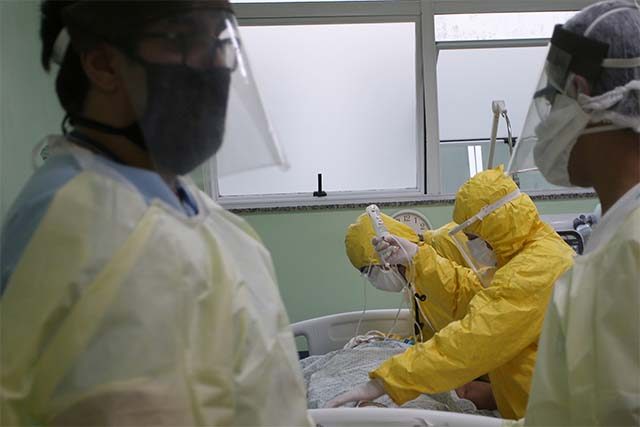
SPONSORED ARTICLES
The following is a summary of some recent studies on COVID-19. They include research that warrants further study to corroborate the findings and that has yet to be certified by peer review.
Brain problems seen in 1% of hospitalized COVID-19 patients
Roughly one in every 100 patients hospitalized with COVID-19 will likely have central nervous system complications, researchers reported on Tuesday at the annual meeting of the Radiological Society of North America.
Among nearly 38,000 patients hospitalized with COVID-19 in the United States and Europe, symptoms led doctors to suspect brain complications in about 11%.
Magnetic resonance imaging (MRI) and computed tomography (CT) exams confirmed central nervous system abnormalities that were most likely associated with the virus in 10% of those patients, for an overall incidence of 1.2%.
The most common finding was stroke due to clogged arteries, but the researchers also saw bleeding in the brain, inflammation of the brain, and other potentially fatal complications.
Study leader Dr. Scott Faro of Thomas Jefferson University in Philadelphia said in a statement that while the lung problems related to COVID-19 are well recognized, “Our study shows that central nervous system complications represent a significant cause of morbidity and mortality in this devastating pandemic.”
Moderna vaccine effectiveness not limited to clinical trials
Moderna’s mRNA COVID-19 vaccine is proving effective in the real world, according to doctors at Kaiser Permanente in California who have been tracking nearly 706,000 adults, half of whom had received the vaccine.
Five months after the second dose, the vaccine was still 87% effective against SARS-CoV-2 infection, 96% effective against COVID-19 hospitalization, and 98% effective against COVID-19 death, researchers reported in The Lancet Regional Health – Americas.
Despite a wide range of chronic diseases among those in the study, the vaccine’s effectiveness against infection ranged from 83% to 92% across age, sex, racial, and ethnic subgroups, researchers said.
Immunologist E. John Wherry of the University of Pennsylvania, who was not involved in the Kaiser study, said it is “highly unlikely” that the Omicron variant of the virus can completely evade all of the immune defenses induced by the vaccines and that current boosters will likely “provide increased protection against this variant.”
COVID-19 at childbirth linked with higher risks; antibody drugs appear to be safe
Pregnant women with COVID-19 face higher risks of childbirth complications than those who are not infected by the coronavirus, a new study found.
A separate study suggests mildly or moderately ill pregnant women with COVID-19 can safely be treated with monoclonal antibody drugs such as those from Regeneron Pharmaceuticals.
The analysis of childbirth complications included 244,645 births, 874 of which were in infected women.
Researchers reported on Tuesday in PLOS Medicine that miscarriage and stillbirth rates did not differ between the groups.
But after accounting for women’s risk factors, researchers found that those with COVID-19 had 80% higher odds of having too much amniotic fluid, doubled odds of dangerously high blood pressure, more than doubled odds of amniotic infection, nearly tripled odds of hemorrhage during delivery, and nearly doubled odds of hemorrhage afterward.
They were also at higher risk for preterm delivery.
“Pregnant women and those who plan to conceive… are strongly encouraged to be vaccinated,” said study leader Dr. Sylvie Epelboin of the University of Paris.
Meanwhile, doctors at the Mayo Clinic in Rochester, Minnesota treated 51 pregnant patients with mild-to-moderate COVID-19 with one of several monoclonal antibody treatments. “No adverse effects were reported, and no patient required COVID-19 related hospitalization,” they reported on Sunday on medRxiv ahead of peer review.
So far, 29 of the women have delivered healthy babies.
There was one miscarriage due to a congenital defect not related to the medication.
The investigators note that while the infusions were well tolerated, the study was a small one.
Further research is recommended to fully assess safety and efficacy in pregnancy, they said.
Brain problems found in 1% of hospitalized COVID-19 patients
Source: Filipino Trend Viral
0 Comments